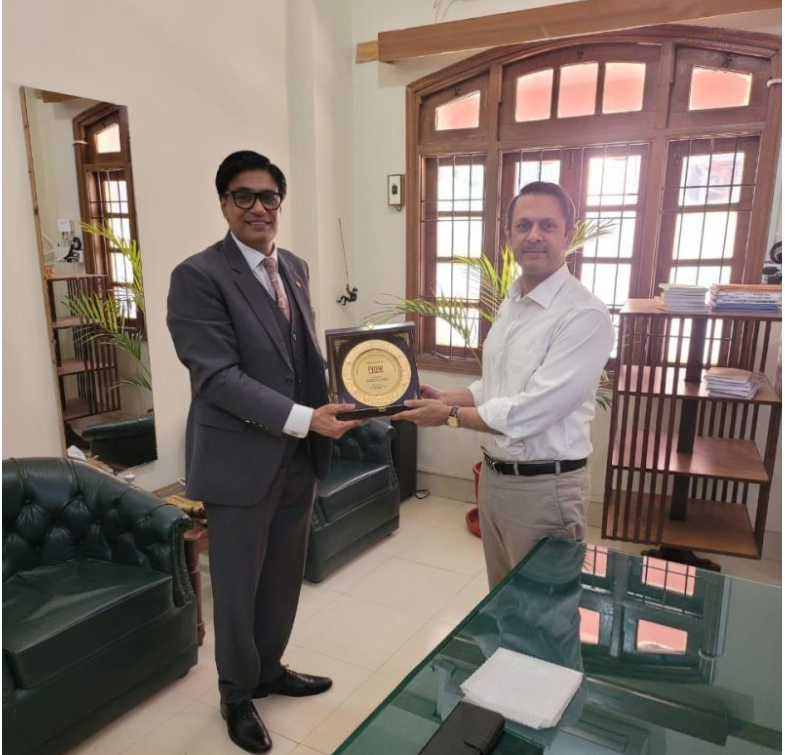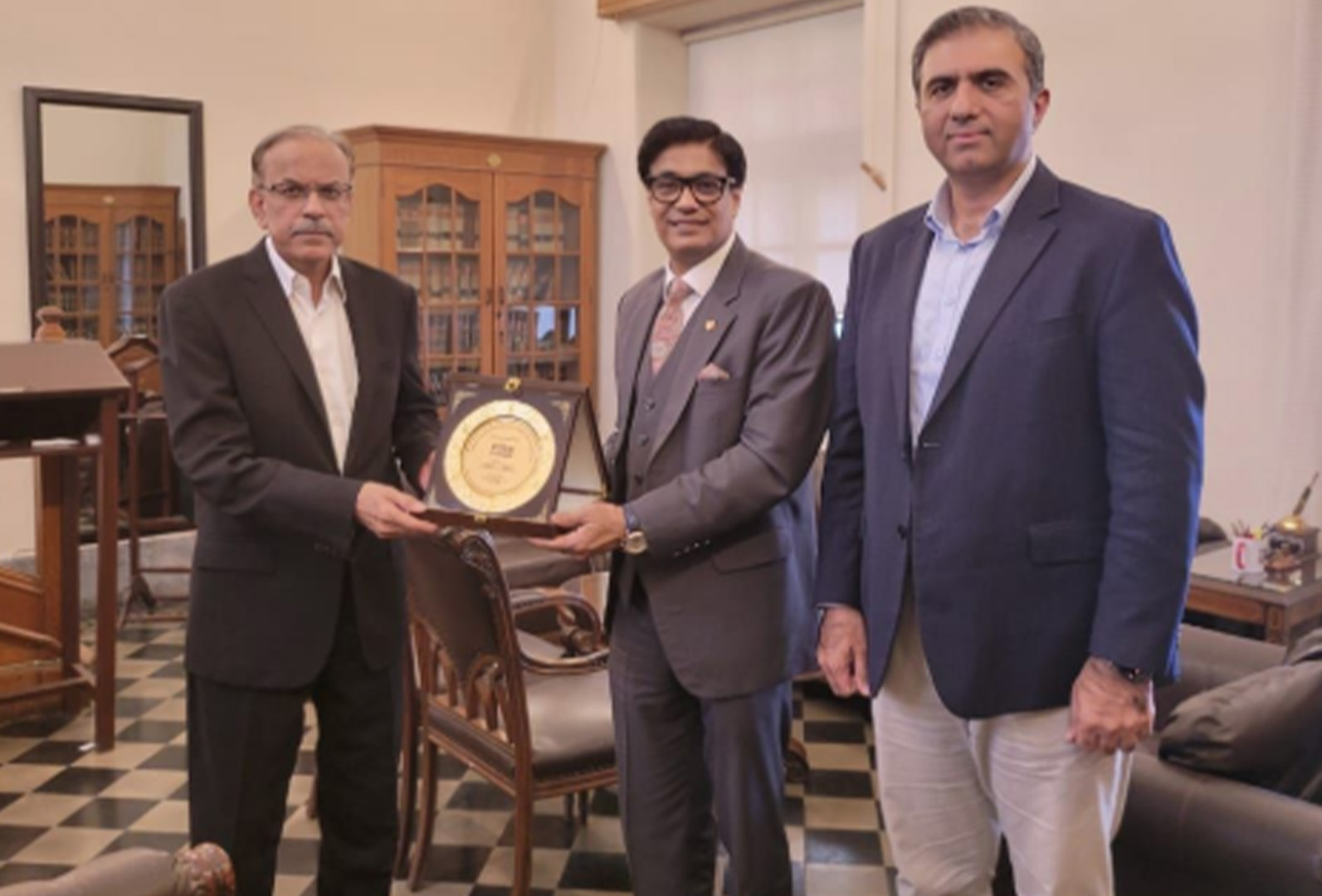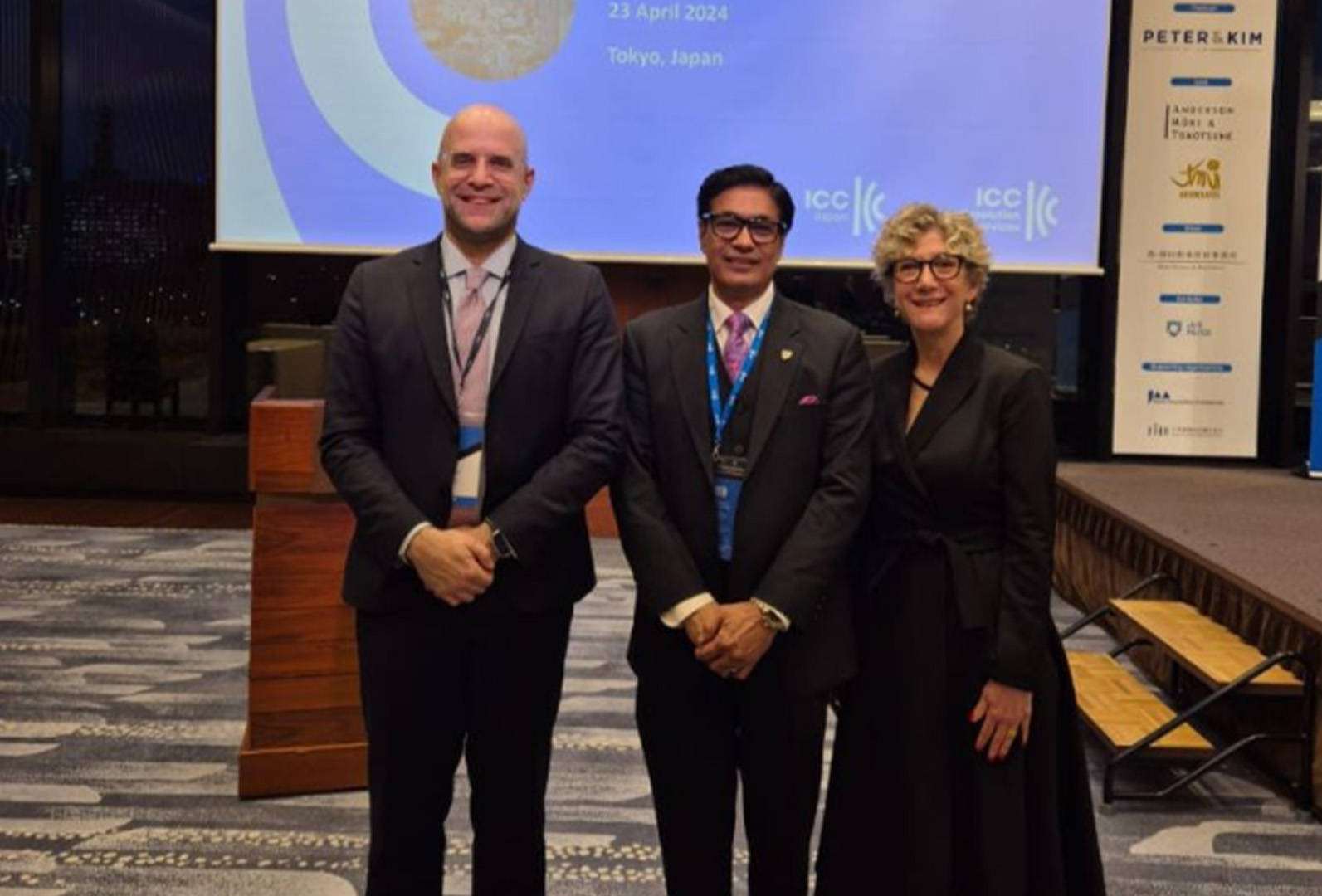Mian Sheraz Javaid Discusses ACICA's Role in Global Arbitration During Meeting with Key Figures
Sheraz expressed his gratitude for Tomkinson's leadership, as she played a huge role in the arbitration landscape in Australia. "It was a pleasure to meet with Deborah on her last day in this role," said Sheraz. "Her contributions under ACICA have been instrumental in shaping Australia's arbitration framework, and I wish her all the best as she transitions to new opportunities with Peter & Kim."
The discussion in the meeting was also on the future of ACICA, mainly with the upcoming change in leadership. Deborah Tomkinson's leaving was marked by the welcoming of Diana Bowman as the incoming Secretary General. Sheraz welcomed Diana warmly and was eager to work with her to advance the organisation's influence within the global arbitration community.
“I look forward to working closely with Diana Bowman and contributing to the continued success of ACICA, especially from this part of the world,” Sheraz remarked. “Together, we can help elevate ACICA’s role in the global arbitration landscape, particularly with regard to high-stakes international disputes.”
Australia has been an early adopter of Alternative Dispute Resolution (ADR) and, indeed, committed to having a robust legal environment that ensures the efficient and effective resolution of disputes. In a discussion with Tomkinson, Bajaj, and Bowman, the point was made regarding the strategic importance ACICA should be playing to bring in big international arbitrations from the Asia-Pacific region.
“ACICA has been at the forefront of Australia’s ADR efforts, and I believe there is tremendous potential to further expand its influence in the Asia-Pacific region,” said Sheraz. “The region is seeing a rapid increase in international arbitration, and Australia, through ACICA, is well-positioned to attract and handle these high-value disputes.”
The Asia-Pacific region recently witnessed a boom in international arbitration cases, driven by fast economic growth and increased investments alongside the ever-changing legal landscape. The countries in this region increasingly turn to arbitration as a means of resolving cross-border disputes in a neutral, efficient, and predictable manner. ACICA's strategic positioning within Australia has allowed it to play an important role in facilitating arbitration within this vibrant region, which will only grow even more important within the coming years.
International Dispute Resolution. Australia's historical commitment to ADR has made this country a beacon for international ADR. One of the very first countries embracing the practice decades ago, it integrated ADR into its own legal framework. It was visionary enough to set up an adequate and efficient mechanism that could confidently be relied on as an effective alternative to full-blown litigation. Sheraz said that being visionary has proved to be an important reason behind Australia's journey to becoming an arbitration jurisdiction.
“Through ACICA’s leadership, Australia continues to set high standards in ADR, and it remains a jurisdiction of choice for international arbitration,” said Sheraz. “The country offers procedural sophistication, legal expertise, and neutrality—traits that make it a trusted environment for resolving complex disputes between international parties.”
He stressed that to date, its ability to sustain and reinforce that neutrality has become very crucial to Australia's strategy to attract diverse legal and cultural parties to these platforms. Impeccably positioned with that impartiality guarantee by sophisticated procedural frameworks instituted under bodies like ACICA, this gives Australia its footing as an authoritative, up-and-coming platform for arbitration. This reputation has become more critical as the global business environment continues to expand, with companies increasingly seeking neutral and expert forums for resolving high-stakes disputes.
ACICA, under the leadership of its outgoing and incoming officials, has played a pivotal role in strengthening Australia's arbitration framework and ensuring that it remains a key player in global dispute resolution. Javaid acknowledged that the influence of the organisation continues to grow, not only in the Asia-Pacific region but also worldwide, as more companies and countries turn to arbitration as an efficient method of resolving complex international disputes.
“ACICA has played a critical role in the evolution of international arbitration in Australia, and I am confident that it will continue to be a vital force in shaping the future of ADR,” Sheraz remarked. “As we move forward, the need for organisations like ACICA, which can offer trusted, impartial, and effective dispute resolution services, will only increase.”
In closing, Sheraz thanked Tomkinson for her leadership and contributions and expressed his optimism about the future of ACICA under Diana Bowman's leadership. With a clear focus on strengthening Australia's strategic role in global arbitration, ACICA is poised to continue its important work in promoting Australia as a premier destination for international dispute resolution.
With growth and diversification of the international business community, the role of ACICA in shaping the future of ADR and international arbitration would be more critical than ever, and experts like Mian Sheraz Javaid play a significant role to ensure the sustained success of arbitration efforts in Australia and beyond.











